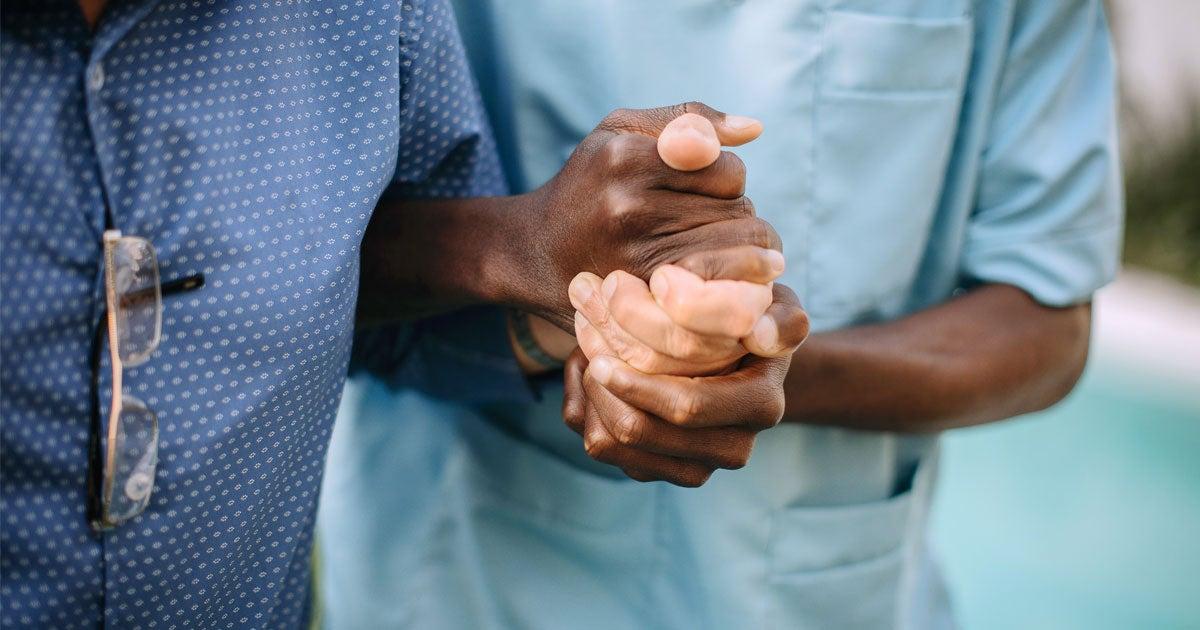
For years, I have watched my neighbors Bea and Gladys silently sacrifice and make do by themselves while caring for others in their old age. These strong, resilient women remind me why I work to make sure every older adult has what they need to age well.
Meet Bea, the "mayor" of the block
My neighbor to the left is Bea. Now in her late 60s, she raised a family as a single mother and spent more than 15 years as an unpaid, full-time caregiver, so her mother could have the best possible final years of life. Now that her mother is gone, Bea must make ends meet without the additional income of her mother’s Social Security check. She’s the “mayor” of the block, always helping neighbors and keeping an eye on what’s going on. Packages stolen by “porch pirates”? Not to worry, Bea will let the postal courier know to drop them at her place next time. Need help shoveling snow, mowing grass, or weeding the yard? Not to worry Bea knows a guy.
Yet, who attends to Bea’s needs? Her house is beaten and battered. Broken windows make it hard to stay warm in the winter and cool in the sweltering Washington, DC, summers. She rarely ventures far from the house, afraid that locks won’t keep her things secure. Every day, she stops discretely by the outdoor food pantry on the corner for fresh veggies. Side hustles help a bit but never add up to peace of mind—a burst pipe or an extra grandchild’s mouth to feed always gets in the way. This is someone who did the right thing in caring for her family. But now she struggles because the care she provided is undervalued and unpaid.
Meet Gladys, strong all the way up to 105 years old
To my right was Gladys. She lived alone for many years, navigating the challenges of declining health without any help. She was fortunate to have her church for support after her family members were long gone. Every Sunday, the church van would pull up to pick up Gladys, who was thus able to visit with friends filling her cup with socialization that had to sustain her the full week in between. She lived on Social Security and spent many of her days home alone before transitioning to a nursing home when the fear of falling on the way to the bathroom became too much. Just a month or so ago, we lost her at 105 years old.
Bea and Gladys are two examples of older women of color who are forced to keep treading water because they started from behind. A lifetime of limited income coupled with family members to care for led to a “retirement” that was anything but relaxing.
We fight for the Beas and the Gladys. We fight for you.
At NCOA, we’re working to help people like Bea and Gladys. Our Equity Promise is our guide. Every day, we fight for public programs that enable older adults to pay for healthy food, manage their chronic conditions, and connect with friends to stave off the lethal effects of isolation. We collaborate with tens of thousands of community-based organizations across the country that work every day to improve the lives of older adults. Together we are making a difference. And in 2022, I know we will accelerate our impact together.
This is why we are so grateful that philanthropist MacKenzie Scott chose to bolster our work with a generous $8 million gift. It is a much-needed first step toward ensuring that every person can age with dignity. I hope it inspires similar gifts because there’s so much work ahead of us. Right now, over 25 million older Americans are financially insecure and 75% have at least two chronic health conditions. With increased economic uncertainty and health issues, we estimate in the coming years, that 1 in 3 older adults will be one crisis away from poverty if we don’t provide the support needed to age with security, purpose, and dignity.
Our Equity Promise means that every day we wake up fighting to ensure all can age well. My commitment to this promise is deep—both personally and professionally.




